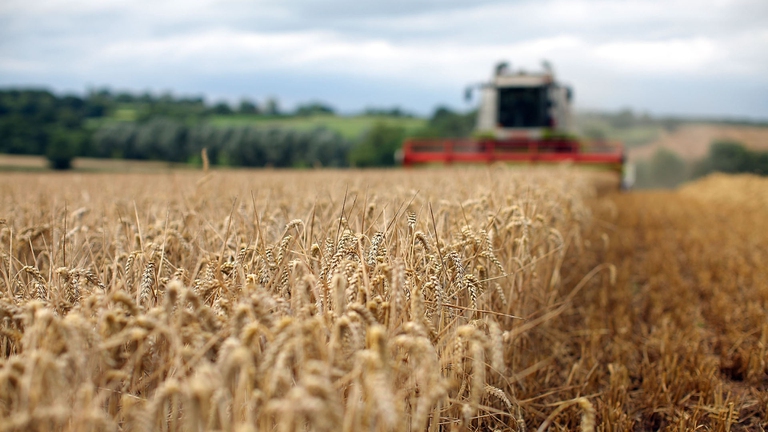https://www.lifegate.it/greenant-intelligenza-ambientale
- |
- Climate change threatens agricultural productivity, including droughts and violent floods:the costs are very high.
- An adaptation response can come from the integration of satellite data and artificial intelligence.
- GreenAnt offers a wide range of solutions, from land studies to risk management.
From the 1960s to today, we have lost the 21 percent of agricultural productivity because of climate changes and, every year, we spend globally 50 billion dollars for damages caused by floods increasingly frequent.By 2050, estimated spending to address climate damage will reach $3.1 trillion per year.However, thanks to the integration of satellite data and artificial intelligence, it is increasingly possible to practice sustainable agriculture and effective environmental management.How does, for example, GreenAnt.
GreenAnt, from ants to environmental intelligence
GreenAnt, initially a breeding company weaver ants used in Thailand as a natural alternative to chemical pesticides (in fact the name literally means green ant) slowly evolved its mission to address climate change more directly.Today, it offers solutions environmental intelligence to farmers, businesses, insurers and governments, providing them with all the information they need to make informed and resilient decisions.
The heart of GreenAnt's offer is Wish, one platform powered by artificial intelligence which uses radar data from satellites Sentinel-1 and Sentinel-2 to develop insights on the territory supported by data that strengthen climate resilience.Unlike optical data, which is generated through images captured by satellites, radar data is collected through signal pulses sent to ground, allowing physical barriers such as cloud cover to be overcome.This makes radar data particularly useful in regions such as Southeast Asia, where cloud cover is frequent.
Desidera leverages this data for a wide range of applications, including estimate of flood risk and changing patterns of natural disasters, predicting future crop yields, monitoring soil temperature and degradation, estimating the amount of groundwater up to 5 meters deep, evaluation of the volume of CO2 stored in biomass, and monitoring deforestation and forest degradation.These analyzes are possible for soils anywhere in the world, down to a single centimeter, with precision up to 95 percent.
Desidera also offers a specialized subscription model for users insurers, which gives them access to detailed, up-to-date crop risk data for specific regions.This allows us to design insurance products tailored to the specific risks of the area, making it easier for farmers to access fair and competitive protection.
A wide range of solutions offered
GreenAnt also offers a range of tailor-made solutions that accredit and protect partner companies.Among these, the Eudr certification.Adopted in June 2023, the European Union Deforestation Regulation (EUDR) requires that, from 2024, products entering the European market do not originate from areas subject to deforestation.Using sophisticated satellite analysis of biomass data, GreenAnt can accelerate and simplify companies' due diligence by certifying that the land their products come from has not been deforested.These official certifications will be recognized by member country governments, allowing companies to export to this lucrative market.
GreenAnt has developed sophisticated software that processes and analyzes radar data to produce detailed and relevant insights into land and climates around the world.For example, as anticipated, the tool can use radar data for modeling soil moisture in a given plot of land, providing valuable information such as crop yield projections, flood risk assessments, capacity estimates CO2 storage and much more.The software is integrated into the Desidera platform, complete with an AI chatbot capable of providing users with output in an easy-to-understand language.This access to detailed information is especially useful for small farmers, who often lack the resources to obtain or translate raw data into actionable information.

A sustainable future
The GreenAnt team, made up of experts in various fields, collaborates with numerous partners to expand their impact and capabilities.In addition to technological solutions, the company - which is part of the sustainable startup ecosystem LifeGate Way – invests in educational initiatives to train farmers and sector operators on the use of new technologies, offering workshops, courses and online resources to ensure that users can make the most of the potential of the Desidera platform.In short, GreenAnt has come a long way since its early days in Thailand:the current mission is to transform the health of an ecosystem into a precious commodity, using sophisticated satellite data to create tools and resources that make equitable climate action accessible and profitable.

